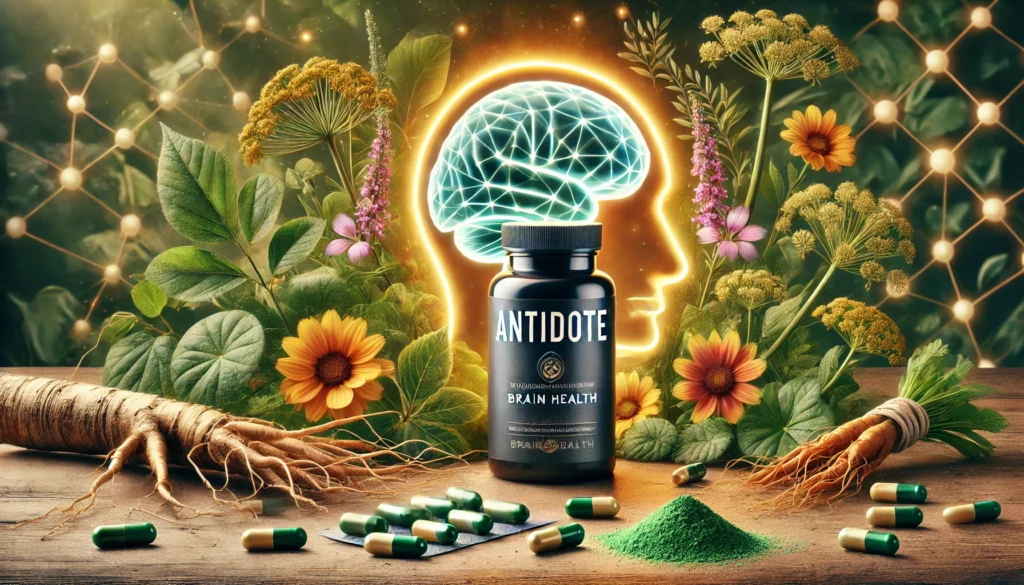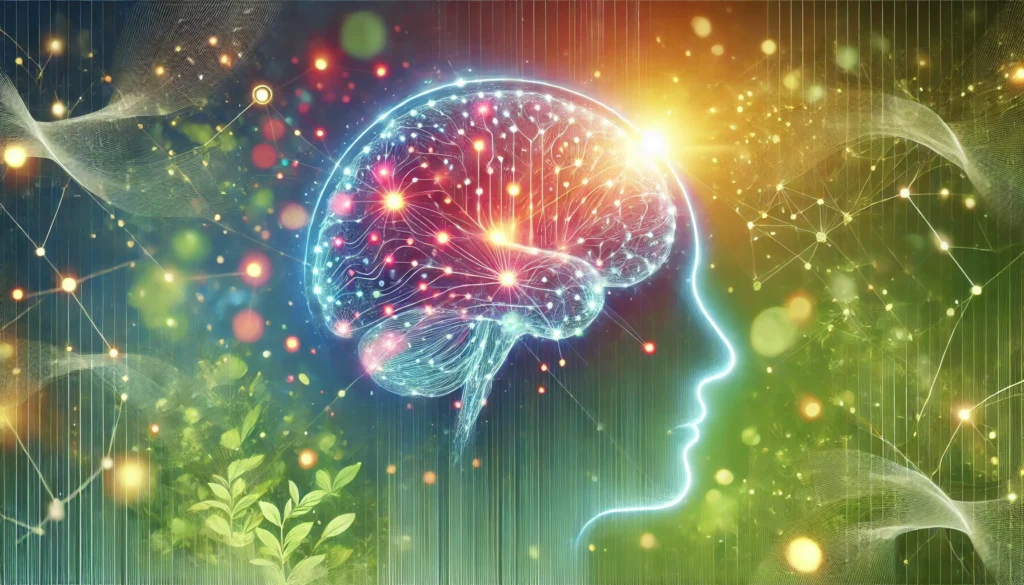The concept of an “opium antidote” originates from historical herbal medicine, where certain plants and herbal blends were used to counteract the sedative and sometimes cognitive-dulling effects of opium. Opium, an extract derived from the opium poppy (Papaver somniferum), has long been known for its powerful analgesic and euphoric effects, but it also induces significant mental fog, lethargy, and, in many cases, dependency. Healers and herbalists of ancient civilizations used various botanical “antidotes” to counterbalance these effects, aiming to restore energy, improve clarity, and reduce withdrawal symptoms when patients ceased opium use.
Modern-day herbal supplements inspired by these traditional practices may have nootropic benefits, potentially improving cognition, focus, memory, and mental resilience. The botanical substances commonly associated with “opium antidote” formulations include Rhodiola rosea, Panax ginseng, Ginkgo biloba, and Camellia sinensis (green tea). These plants, known for their adaptogenic and stimulant properties, remain popular for promoting mental clarity and energy. This article provides an in-depth look at these herbs, their chemistry, physiological mechanisms, potential cognitive benefits, recommended dosages, side effects, interactions, and precautions.
You May Also Like:
Oolong Tea: Potential Nootropic Benefits, Dosage, Side Effects, Interactions, and Other Important Information About This Supplement
Omega-6 Fatty Acids: Potential Nootropic Benefits, Dosage, Side Effects, Interactions, and Other Important Information About This Supplement
Opium Antidote: A Comprehensive Exploration of Traditional Botanical Blends, Nootropic Potential, Dosage, Safety, and Interactions is an original (NootropicsPlanet) article.
Historical Background
The use of botanical blends as counteragents to opium was prevalent in ancient Egypt, Persia, China, and later in Europe. Physicians in these regions recognized that certain herbs could help patients regain their mental acuity, counteracting the sedative “cloud” that opium often caused. While no herb could completely neutralize opium’s effects, particular botanicals appeared to offer support for cognition, energy, and mood.
Sources of Opium Antidote Compounds
The following are the primary herbs historically associated with opium antidote formulations, and they are still valued today for their potential cognitive benefits:
- Rhodiola rosea: Known as “golden root” in traditional medicine, Rhodiola rosea is an adaptogenic herb that helps the body resist physical and mental stress. It is widely used to help combat fatigue, enhance mood, and sharpen mental clarity.
- Panax ginseng: Often called the “king of herbs” in traditional Chinese medicine, ginseng is a root revered for its stimulant and adaptogenic properties. It has been studied for its effects on mental clarity, energy, and mood enhancement.
- Ginkgo biloba: The Ginkgo tree is one of the oldest living tree species, and its leaves have been used in Chinese medicine for thousands of years. Ginkgo is particularly valued for its ability to improve circulation, enhance memory, and provide neuroprotection.
- Green Tea (Camellia sinensis): Known for its high antioxidant content, green tea provides a mild stimulant effect due to its caffeine content, paired with the relaxing amino acid L-theanine, which promotes focus without jitteriness.
These herbs are commonly found in standalone supplement forms or as part of multi-ingredient nootropic formulas designed to enhance cognitive function and resilience to stress.

Chemistry of Opium Antidote Compounds
The active compounds in these botanicals each contribute uniquely to their potential benefits. Here’s a breakdown of the primary active ingredients and their effects:
- Rhodiola rosea: Contains two key bioactive compounds, salidroside and rosavin, which play significant roles in modulating stress and enhancing mental clarity. Salidroside, in particular, has been shown to influence serotonin and dopamine levels, which contribute to improved mood and reduced fatigue.
- Panax Ginseng: The main bioactive compounds in ginseng are ginsenosides, a group of saponins that exhibit antioxidant properties, stimulate dopamine production, and enhance cellular energy (ATP) synthesis. These effects make ginseng a powerful stimulant that could improve cognitive performance.
- Ginkgo biloba: Rich in terpenoids and flavonoids, Ginkgo has strong antioxidant properties that protect neurons from oxidative stress. Flavonoids, such as quercetin, contribute to improved blood flow, while terpenoids like bilobalide help protect brain cells from damage.
- Green Tea (Camellia sinensis): Green tea contains caffeine and L-theanine, which together create a balanced stimulant effect. Caffeine acts as an adenosine antagonist, promoting wakefulness, while L-theanine helps increase alpha brain waves associated with a calm but focused mental state.
Physiological Mechanisms of Action
Each herb works through distinct but complementary mechanisms to enhance mental clarity, energy, and stress resilience. The primary mechanisms include:
- Energy and Stimulation: Panax ginseng’s ginsenosides boost dopamine production and reduce mental fatigue, while caffeine from green tea acts as a stimulant, blocking adenosine receptors in the brain. This combination may help counteract the mental sluggishness associated with opium or other sedative agents.
- Adaptogenic and Stress Resilience Effects: Rhodiola rosea and ginseng are adaptogens, meaning they help the body modulate stress responses. Rhodiola’s salidroside, for example, has been shown to reduce cortisol levels, creating a balanced stress response that may prevent mental burnout.
- Antioxidant and Neuroprotective Actions: Ginkgo biloba and green tea provide strong antioxidant effects. Ginkgo’s terpenoids help protect the brain from oxidative damage, while flavonoids help enhance blood circulation, delivering more oxygen and nutrients to brain cells. This mechanism is vital for long-term cognitive health and resilience.
- Cognitive Enhancement through Neurotransmitter Modulation: Salidroside, ginsenosides, and caffeine modulate neurotransmitters such as dopamine and serotonin, improving mood and focus. The combined effect of these compounds may enhance mental alertness and clarity, making them valuable in nootropic blends aimed at cognitive enhancement.
Unlock Brain Health and Mental Resilience with Advanced Bacopa Monnieri—Shop Now on Amazon!

Potential Nootropic Benefits
These botanical compounds collectively offer a range of potential cognitive benefits that make them attractive to those seeking natural nootropics:
- Increased Focus and Attention: The combination of L-theanine and caffeine in green tea is particularly effective for enhancing sustained focus. Studies show that L-theanine, when combined with caffeine, could improve cognitive performance by reducing mind-wandering and increasing task engagement.
- Memory and Learning Support: Ginkgo biloba is renowned for its effects on memory. Clinical studies have shown that Ginkgo could improve memory retention, particularly in middle-aged and older adults, by increasing blood flow to the brain and protecting against neuronal damage.
- Mood Enhancement and Stress Reduction: Rhodiola rosea has been shown to reduce stress-induced fatigue and improve overall cognitive performance. Ginseng also has mood-enhancing effects due to its ability to stimulate dopamine production, which may counteract the anhedonic effects often experienced after opium or sedative withdrawal.
- Enhanced Resilience to Withdrawal Symptoms: While not a replacement for clinical intervention, some herbs like Rhodiola and ginseng have shown promise in easing symptoms associated with opioid withdrawal, such as fatigue and mood swings, by modulating stress hormones and neurotransmitters.

Dosage Recommendations
When using these herbs as nootropics or recovery aids, proper dosing is crucial. Here are the general guidelines based on current research:
- Rhodiola rosea: Standardized extracts (3% rosavin, 1% salidroside) are typically taken in doses of 200-600 mg per day. This range supports mental clarity and stress resilience without overstimulation.
- Panax Ginseng: Dosages between 200 and 400 mg per day (standardized to 2-3% ginsenosides) are generally considered safe and effective for cognitive and mood benefits.
- Ginkgo biloba: A daily dose of 120-240 mg (standardized to 24% flavonoids and 6% terpenoids) is common for memory support, particularly in middle-aged or older individuals.
- Green Tea (or L-theanine and caffeine combination): A combination of 100-200 mg L-theanine with 50-100 mg caffeine is effective for focus and alertness. This combination helps reduce the jitteriness commonly associated with caffeine alone.
Safety, Side Effects, and Precautions
While these herbs are generally safe at recommended doses, users should be aware of potential side effects and safety considerations:
- Rhodiola rosea: Generally well-tolerated but may cause dry mouth or dizziness in some individuals, particularly at higher doses.
- Panax Ginseng: May occasionally cause insomnia, headaches, or digestive discomfort. It may also overstimulate at high doses or in individuals sensitive to stimulants.
- Ginkgo biloba: May increase bleeding risk due to its effect on blood circulation. Potential side effects include digestive upset and, in rare cases, headaches or allergic skin reactions.
- Green Tea (Caffeine and L-theanine): Excessive caffeine could lead to anxiety, jitteriness, or insomnia. L-theanine typically balances these effects, but sensitive individuals should limit intake, particularly in the evening.
Enhance Focus and Cognitive Performance with Panax Ginseng Supplements—Buy Now on Amazon!

Potential Interactions
Each of these herbs can interact with medications and other supplements, so it’s important to exercise caution and consult a healthcare professional if necessary:
- Antidepressants: Rhodiola and ginseng may interact with SSRIs and other antidepressants, potentially increasing the risk of serotonin syndrome. It is best to avoid using these herbs alongside certain antidepressants.
- Blood Thinners: Ginkgo biloba may increase bleeding risk, particularly if combined with anticoagulants like warfarin, aspirin, or certain herbal supplements like garlic or turmeric.
- Stimulants: Caffeine and ginseng both have stimulant properties, so they should be used cautiously with other stimulants to avoid overstimulation.
- Anti-Anxiety Medications: L-theanine may amplify the effects of anti-anxiety drugs, potentially leading to increased drowsiness.
Special Considerations for Certain Health Conditions
Individuals with certain health conditions should avoid or limit their intake of these herbs:
- Cardiovascular Disease: High doses of ginseng or caffeine may elevate blood pressure, so those with cardiovascular conditions should consult a physician before use.
- Autoimmune Conditions: Ginseng could stimulate the immune system, which may exacerbate autoimmune symptoms. Those with autoimmune diseases should seek professional advice before supplementation.
- Liver or Kidney Impairment: Since these herbs are metabolized by the liver and kidneys, individuals with impaired liver or kidney function should use them cautiously.
Evaluating Opium Antidote Botanicals as Nootropics
While modern usage of these botanicals has shifted toward general cognitive enhancement rather than as opium “antidotes,” their traditional applications highlight their potential in supporting mental clarity, focus, and mood. The use of these supplements for nootropic purposes is growing as more people seek natural alternatives to boost cognitive function and resilience to stress. However, given the potent effects of these herbs and their potential for interactions, users are advised to consult a healthcare provider, particularly if they are taking medications or have underlying health conditions.
In conclusion, the botanicals once referred to as “opium antidotes” offer scientifically-backed benefits for cognitive enhancement. With mindful use and attention to recommended doses, these supplements may be a valuable part of a wellness routine for improved focus, mood, and resilience.

References:
- Rhodiola rosea L. Improves Learning and Memory Function: Preclinical Evidence and Possible Mechanisms. Retrieved from: https://pmc.ncbi.nlm.nih.gov/articles/PMC6288277/
- The memory enhancing effects of a Ginkgo biloba/Panax ginseng combination in healthy middle-aged volunteers. Retrieved from: https://pubmed.ncbi.nlm.nih.gov/11140327/
- Green tea effects on cognition, mood and human brain function: A systematic review. Retrieved from: https://pubmed.ncbi.nlm.nih.gov/28899506/
- The role of glutamine in neurogenesis promoted by the green tea amino acid theanine in neural progenitor cells for brain health. Retrieved from: https://www.sciencedirect.com/science/article/abs/pii/S0197018619302657
Important Note: The information contained in this article is for general informational purposes only, and should not be construed as health or medical advice, nor is it intended to diagnose, prevent, treat, or cure any disease or health condition. Before embarking on any diet, fitness regimen, or program of nutritional supplementation, it is advisable to consult your healthcare professional in order to determine its safety and probable efficacy in terms of your individual state of health.
Regarding Nutritional Supplements Or Other Non-Prescription Health Products: If any nutritional supplements or other non-prescription health products are mentioned in the foregoing article, any claims or statements made about them have not been evaluated by the U.S. Food and Drug Administration, and such nutritional supplements or other health products are not intended to diagnose, treat, cure, or prevent any disease.


